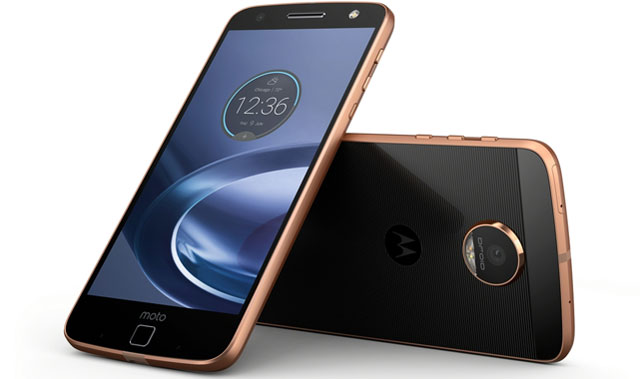
Lenovo’s mobile phone business continues to shrink, while its PC division managed anaemic growth in the face of brutal holiday-season competition.
The world’s largest PC maker’s profit plummeted more than two thirds in the December quarter, missing analysts’ projections after HP threatened its position in North America. Smartphone sales declined by almost a quarter globally as Lenovo bled market share to rivals such as Huawei — both at home and abroad.
Lenovo remains the leader in a PC market struggling through a prolonged downturn as people opt for smartphones to handle everyday tasks. But it barely maintained pole position over HP as its chief rival widened its share in North America, according to research firm International Data Corp.
In mobile, Lenovo is pinning its hopes on premium phones, such as the one with augmented reality capabilities, to breathe life into the loss-making division. Yet it’s still ceding ground to rivals that’re winning users over with aggressive sales tactics.
Shares of Lenovo had fallen 6,7% by 3.27pm in Hong Kong, on track for their biggest fall since May.
A rise in memory chip prices pressured margins in Lenovo’s main business. While the industry isn’t yet out of the woods, it’s showing signs of stabilisation, executives said on a post-earnings conference call. Worldwide PC shipments fell 1,5% in the fourth quarter, a slimmer decline than the previous period’s 4%, according to IDC.
“The component price remains high, which could be a headwind for them,” said Chris Yim, an analyst with Bocom International. But “their net income should get better. The global PC market is stabilising, that’s a good sign for them.”
Net income fell 67% to US$98m in the quarter that ended in December, well below the the $145,9m average of analysts’ estimates compiled by Bloomberg. Revenue fell 6% to $12,2bn, compared with estimates for $11,7bn. The Chinese company warned on Thursday its market will remain challenging because of macroeconomic uncertainty and rising component prices.
Lenovo is cutting jobs, selling assets and pushing into higher-end devices to weather shrinking demand and competition.
Three years after Lenovo closed its $2,9bn acquisition of Motorola Mobility, the smartphone business remains well behind Vivo, Oppo and Huawei in terms of market share.
Its mobile business turned in an operating loss of $112m after sales slid 23% to $2,2bn. Worldwide smartphone shipments dived 26% as its market share slipped to 3,5%, the company said.
In 2016, it appointed long-time human resources director Gina Qiao to lead smartphone sales in China, the third executive in the position since the Motorola takeover. She hasn’t outlined how she intends to revive the business. CEO Yang Yuanqing said he remained confident the division will achieve break-even by the second half of the next fiscal year ending March 2018.
“We’ll start from scratch to rebuild our China business,” Yang said in a telephone interview. “You probably can’t see the progress from the financial data but she’s building a stronger team and a better business model.”
Phone shipments, including Motorolas, dived more than 30% in 2016, Counterpoint Research estimates. The company was ranked ninth globally during the holiday quarter, ahead of Alcatel but behind South Korea’s LG. Lenovo has said it expects the smartphone business to turn profitable this year, though a paucity of new models cast doubt on its outlook, Yim wrote in a note ahead of the earnings.
Lenovo’s PC business — still 70% of its revenue — managed growth in the quarter, as both revenue and shipments edged 2% higher. The Beijing-based company is now negotiating a deal to tie up with Japan’s Fujitsu and shore up its position, an imperative given the smartphone business it bought with Motorola remains unprofitable.
The data centre unit, built up around the 2014 acquisition of IBM’s low-end server business, didn’t fare as well. Revenue there slid 20% to $1,1bn.
“Lenovo is as keen as Fujitsu to close a deal soon, so that it can comfortably retain its number-one PC crown,” Ken Hui, an analyst at Huatai Financial Holdings, wrote in a note ahead of the earnings release. — (c) 2017 Bloomberg LP

